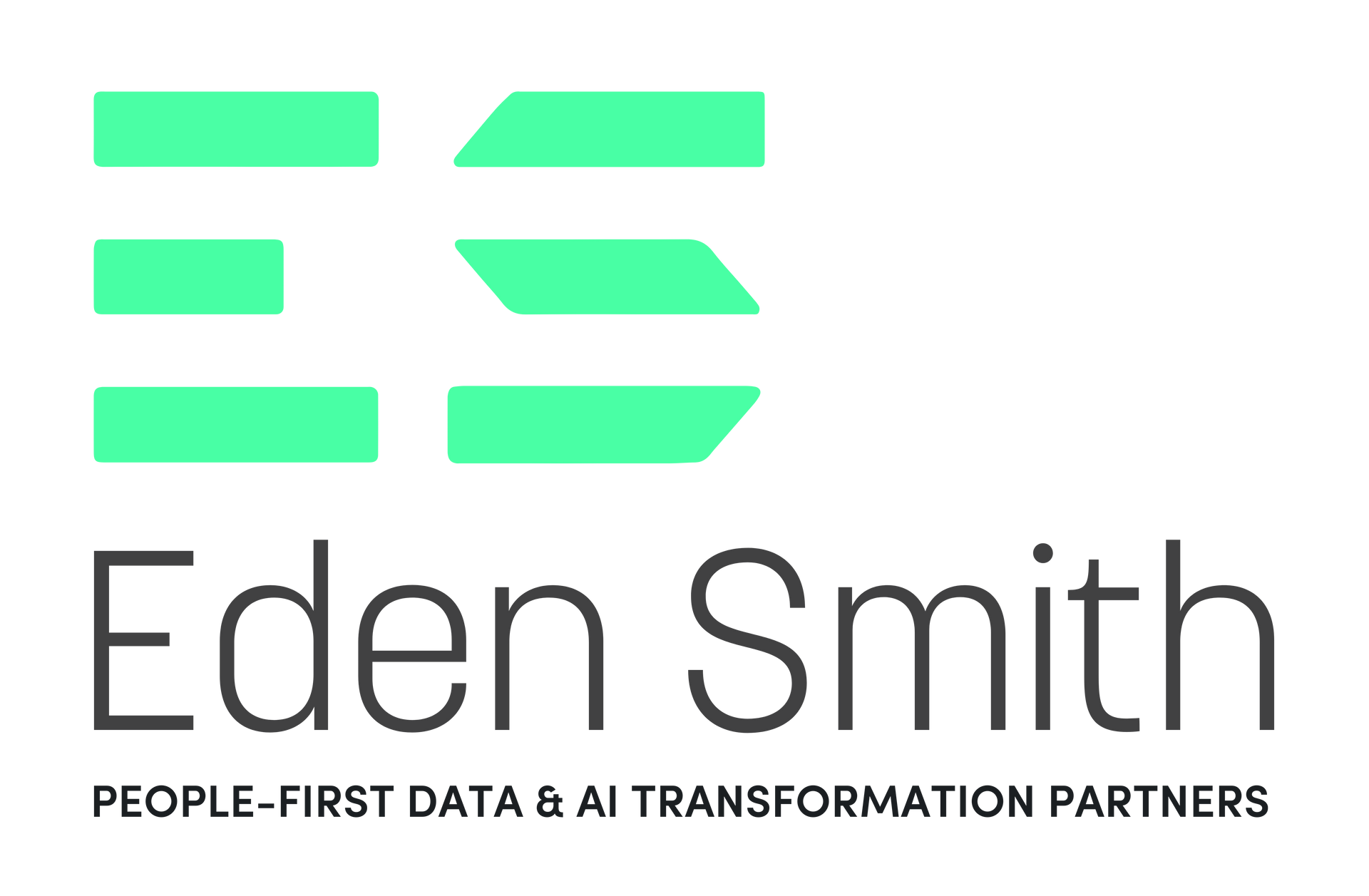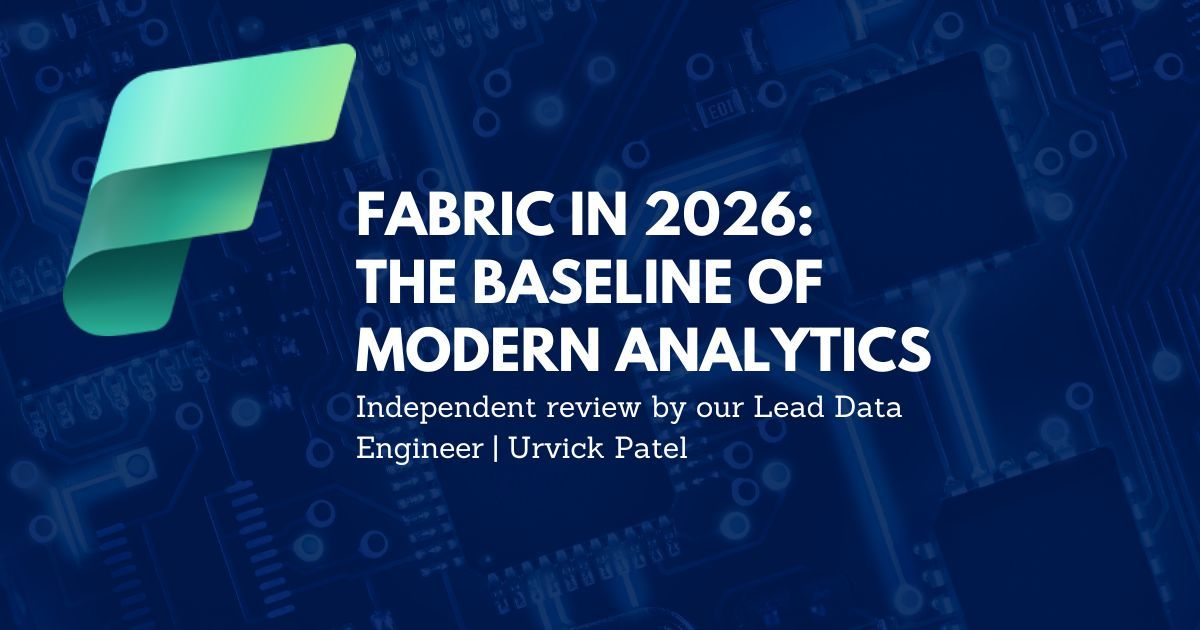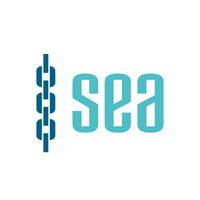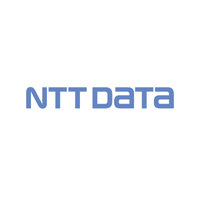Why Recruitment Companies Matter for the Next Generation
Unlocking Opportunities and Shaping Careers for Young Talent
Why go in at it alone when you can have a job-finding partner in your corner?
Imagine you’ve just finished your studies or are thinking about making your first big step into the working world. The options can seem endless yet overwhelming. Where do you start? How do you know which jobs are right for you? How will you make your difference in the world? This is where recruitment companies – like Eden Smith & Green Talent Solutions - can offer a helping hand. For young people, especially those just entering the job market, recruitment companies can be a valuable partner on the journey to a successful and fulfilling career.
How Recruitment Agencies Connect Talent with Opportunity?
Recruitment companies act as a bridge narrowing the gap between jobseekers and employers. Their main mission is to help companies find the right people for their job openings by analysing and implementing effective data strategies through expert consulting whilst, helping individuals find positions that fit their skills, interests, and ambitions. They work with a wide variety of industries and roles, from entry-level to executive, and often have insights into jobs that aren’t even advertised publicly helping to get your foot in the doorway.
No Experience? No Problem, Recruiters Know Where You Fit In.
Starting a career can be challenging and confusing especially for those new to the work life. For younger audiences, whether you’re finishing school, graduating from college, or just exploring options, recruitment companies offer a range of benefits that can give you a real edge and helping hand:
- Insider Access to opportunities: many companies use recruitment agencies for their hiring needs, sometimes even before posting jobs online. By working with an agency, you could get access to positions that aren’t visible to everyone else, placing you at an advantage.
- Guidance and Support: navigating job applications, preparing for interviews, and figuring out your career path can be daunting and create anxiety around the whole situation. Recruiters help polish your CV, offer interview tips, and provide personalised advice based on your strengths and interests.
- Time Saving: job hunting can take a lot of time and energy. Recruitment companies streamline the process by matching you with suitable roles and handling some of the paperwork and communication for you, creating a smoother sailing experience.
- Building Confidence: having a professional ally on your side can boost your confidence, especially if you’re nervous about entering the job market for the first time.
- Feedback and Growth: Even if you don’t get the first job you apply for, a good recruiter will offer constructive feedback to help you improve for next time.
What Recruiters Actually Do for You
The process typically starts with a conversation. You might submit your CV and have a chat about your background, interests, and goals. Recruiters use this information to match you with suitable job openings. They’ll often help you improve and perfect your CV, prepare for interviews, and negotiate job offers.
Many recruitment companies specialise in particular industries - tech, healthcare, finance, creative arts, or (like us) Data & AI! By choosing an agency that focuses on your area of interest, you’re more likely to get advice and opportunities tailored to your ambitions.
What you’re missing out on
A significant portion of jobs are never advertised publicly. Instead, they’re filled through internal recommendations or, increasingly, through recruitment agencies. This “hidden job market” is especially important for younger people, who might not have extensive professional networks yet. By working with a recruitment company, you instantly gain access to their well-established contacts and insights, opening doors that could otherwise remain closed creating a valuable experience and a one up from other job seekers
Career services estimate that roughly 75% of job openings are filled through the “hidden job market” and never posted on public boards.
How Recruiters Help You Grow
Let’s look at some concrete ways recruitment companies can benefit younger jobseekers:
- Access to Entry-Level Roles: many agencies specialise in roles for recent graduates or those with limited experience. They understand what it’s like to be at the beginning of your career and can connect you with companies looking to invest in young talent.
- Career Exploration: Unsure about what you want to do is completely normal at a young age that’s why recruiters can introduce you to a variety of roles and industries, helping you discover careers you might not have considered.
- Internships and Temporary Positions: Recruitment companies often have leads on internships, apprenticeships, work experience and temporary jobs, which are great ways to gain experience better your CV to stand out.
- Mentorship and Networking: Recruiters have seen countless people start their careers; they can offer advice, encouragement, and sometimes even mentorship creating self-confidence and a sense of accomplishment. Plus, they can introduce you to key players in your chosen field.
Scrolling Past Your Best Career Help?
Social media has changed how young people approach job hunting - but not always for the better. With platforms like TikTok, Instagram, and LinkedIn full of career tips, influencer advice, and direct job postings, many young job seekers rely heavily on these channels and often overlook the value of recruitment companies.
The fast-paced, DIY nature of social media can give the impression that finding a job is as simple as sending a DM or following a viral hack. In fact, you need to compete for every role and engaging with those who are in a position requires proactiveness and persistency.
Passive DM’s that merely state “I’m interested in this role” hardly demonstrates commitment and is unlikely to get you any interview. Yes, you can find roles without a recruiter, but some young candidates miss out on the tailored support, insider connections, and long-term career planning that recruitment agencies offer. While social media can be a great starting point, it’s important to recognise that recruiters bring real-world experience and professional networks that algorithms and trending videos just can’t match.
How to Spot a Recruitment Company That Works for You
The right recruitment company is crucial when looking to join the work force and shapes your chances in succeeding so it is essential to find one that is a specialist in your chosen career pathway and reputable. To get the most out of your experience, look for agencies that:
- Take the time to understand your goals, skills, and interests
- Offer honest feedback and constructive advice
- Have a solid reputation in your area of interest or industry
- Communicate clearly and regularly
- Respect your preferences and boundaries
Team Up with a Recruiter the Right Way
- Be honest about your goals and limitations. The more they know, the better they can help you.
- Keep your CV up to date and highlight your achievements, skills, and interests.
- Stay open-minded. You might discover opportunities you hadn’t considered.
- Ask questions! Don’t be shy about seeking advice on interview techniques, workplace culture, or career progression.
- Keep in touch, even after you land a job. Recruiters can help you as your career evolves, offering guidance on promotions, new roles, or further training.
Shaping the Future
For younger audiences, recruitment companies are more than just job-finding services, they are gateways to new experiences, learning opportunities, and long-term growth. They play a vital role in shaping the workforce of tomorrow by connecting energetic, creative individuals with businesses eager for fresh talent.
In an ever-changing job market, having a professional ally can make all the difference. Whether you dream of launching an app, designing buildings, working in healthcare, or anything in between, recruitment companies can help you take the first step.
Next steps
The importance of recruitment companies for young people cannot be overstated. They offer unique access, expert guidance, and genuine support at a time when you need it most. If you’re ready to jump-start your career or just explore your options in the world of data and AI, reach out to a member of our team. Your next big opportunity could be just a phone call away. The world of work awaits, and with the right help, you can step into it with confidence and excitement.

